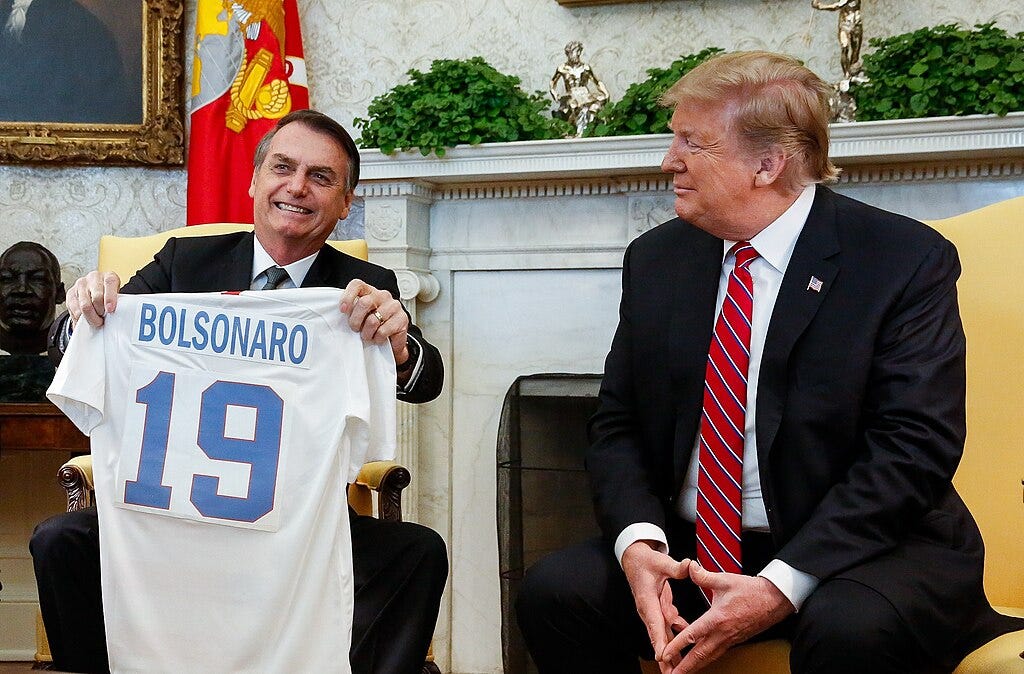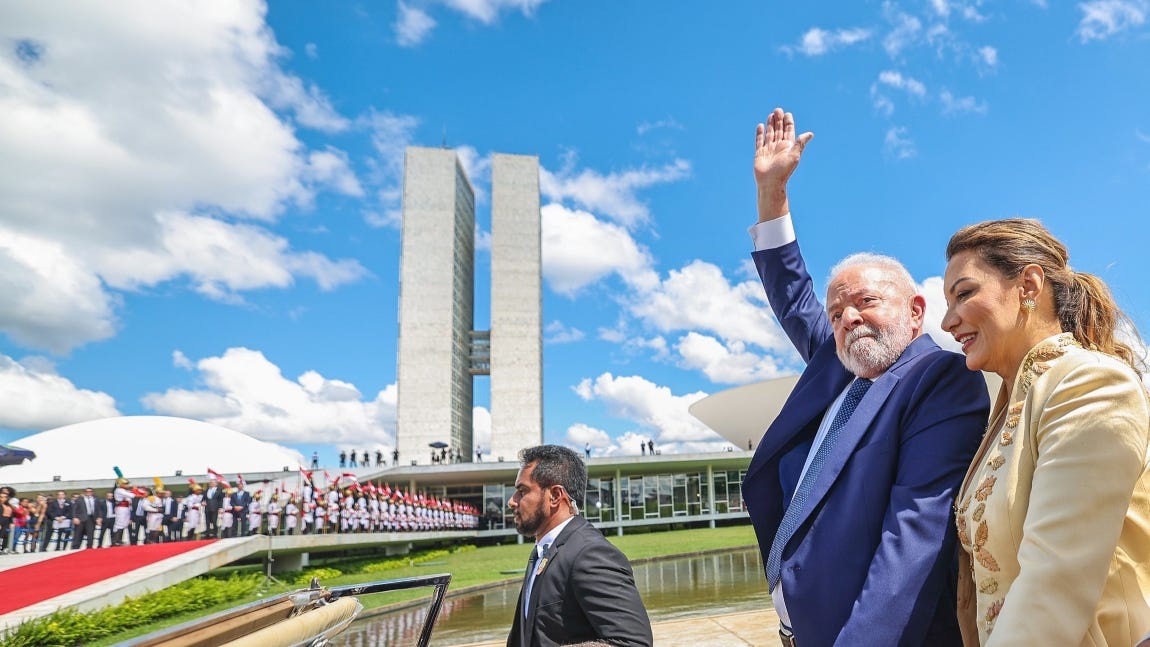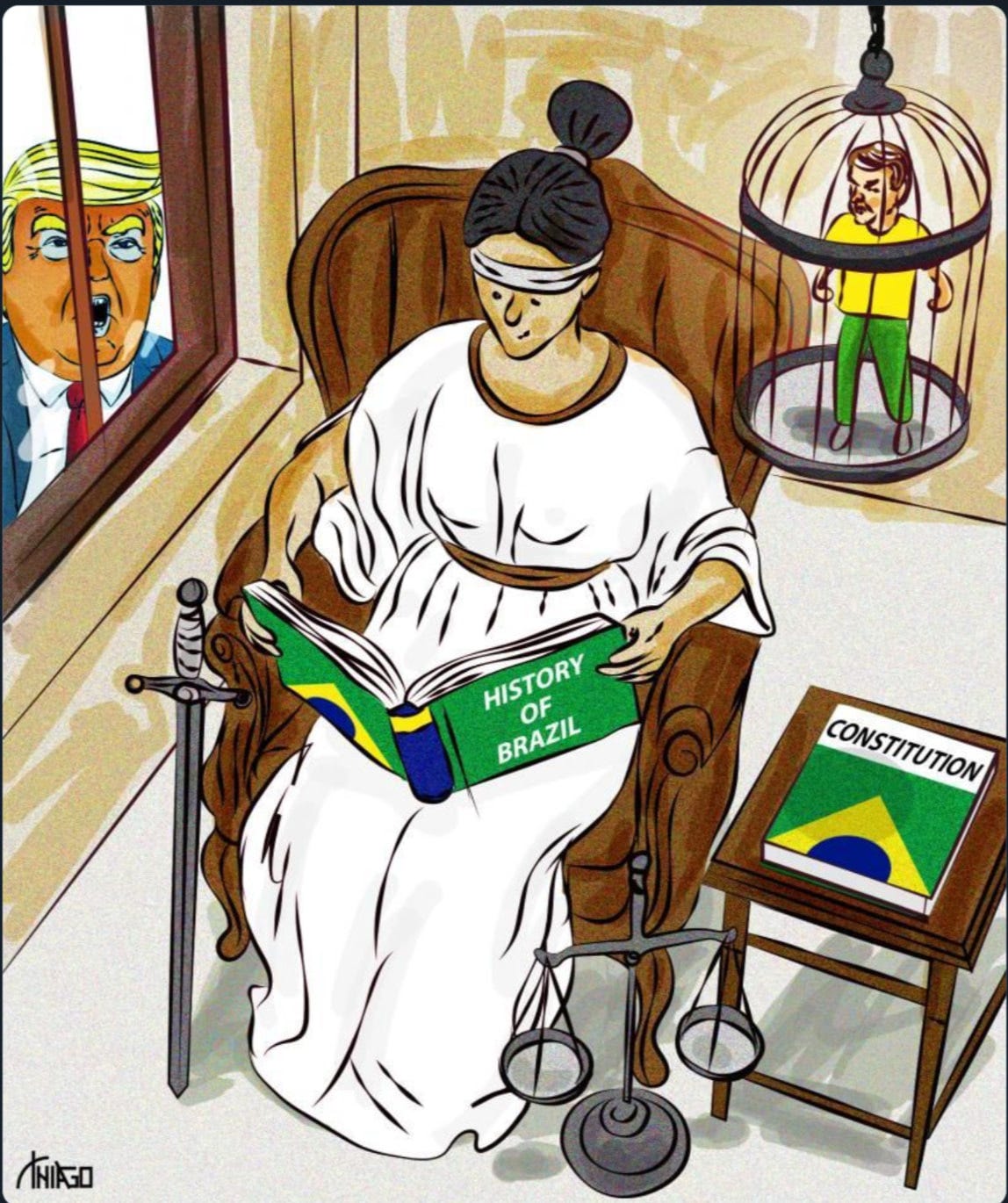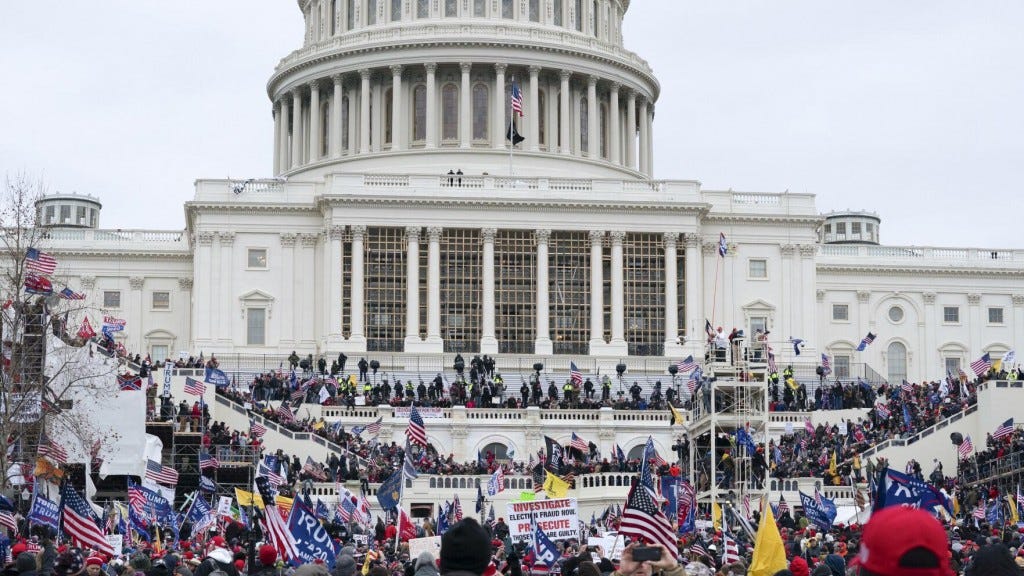Breakfast table battle: Brazil and Bolsonaro, America and Trump, and the squeezing of Florida
News, Commentary
Sept. 16, 2025 by David Silverberg
Your breakfast table is now a battlefield.
Your morning coffee and your orange juice are the weapons.
Taste them, savor them, pay attention to their flavors and subtleties and enjoy them to the fullest because they’re going to be taxed, perhaps beyond what you’re willing to pay for them in the future. What was once ordinary and routine is about to become rare and precious.
And all this is because President Donald Trump is trying to reverse a just judgment against a coup plotter, insurrectionist and would-be dictator in a land far away.
Last Thursday, Sept. 11, while Americans memorialized the terrorist attacks of 24 years ago, the Brazilian Supreme Federal Court found Jair Bolsonaro, Brazil’s former president, guilty of plotting a military coup to overthrow Brazil’s democratic government.
He was sentenced to 27 years and 3 months in prison. The likelihood is that Bolsonaro will have to serve his time—the Brazilians aren’t kidding around.
Their judgment is informed by a 21-year experience of military dictatorship. They know what it means to be governed autocratically and to lose their freedoms. So when a politician plots to overthrow a democratically-elected government and sends a mob to destroy the legislative branch of government, they know that they have to respond firmly and decisively. The guilty party has to be punished fully because nothing else will preserve the rule of law, the Constitution and democracy.
Bolsonaro closely imitated Donald Trump in numerous ways.
His fate holds important lessons for the United States and for democracies that seek to defend themselves from demagogic authoritarianism. In this affair there are warnings—and especially lessons—for Americans.
As important, all Americans, including those living in Southwest Florida, are going to feel the effects of this battle.
The ‘Tropical Trump’

Bolsonaro was dubbed the “Tropical Trump,” a politician who took his cues from Donald Trump in both his election campaigns and governing. He was a demagogic, extremist populist campaigner and president who used insults and personal attacks both on the stump and through social media. He dismissed critical press coverage as “fake news.” He promised to “drain the swamp” of Brazilian politics.
Bolsonaro served as president from 2019 to 2023. In contrast to Trump he’d had a lengthy career in electoral politics before assuming the presidency. In 1990 after serving in the military he was elected to the city council of Rio de Janeiro and then to the Chamber of Deputies, the Brazilian House of Representatives. He served there for 27 years and became known for his conservatism. In 2018 he ran for president on a very Trump-like platform and won.
When he took office, Bolsonaro had to immediately deal with an economic crisis, which he did by favoring laissez fare economic solutions. He also rolled back protections for indigenous people and their lands and most notoriously stripped environmental protections from the Amazon rainforest in favor of agribusinesses.
He also advocated removing police restrictions to fight the country’s high crime rate. “A policeman who doesn’t kill isn’t a policeman,” he said while campaigning. In a country that had one of the highest rates of police killings in the world, he wanted greater lethality and defended the use of torture.
Once elected, Brazilian crime rates fell and the economy slowly recovered. But then, like Trump, Bolsonaro was hit with a curve ball: the COVID-19 pandemic.
Like Trump, Bolsonaro initially dismissed the disease, calling it “a little flu” and belittling media warnings as “hysteria.”
But as in the United States, COVID struck hard in Brazil. As in the United States voters didn’t forget. And like Trump, Bolsonaro paid the price when those voters went to the polls.
In the United States, Trump lost the 2020 election to Democrat Joe Biden. Unwilling to accept the results, on Jan. 6, 2021Trump incited his followers to attack the United States Capitol, overturn the election and lynch Vice President Mike Pence, when he wouldn’t de-certify the results as Trump wanted. After several hours of inaction by Trump, the insurrection was suppressed by police and National Guard troops.
In Brazil, Bolsonaro lost the 2022 election to the progressive, trade-unionist Luiz Inacio Lula da Silva, universally known as Lula. Like Trump, Bolsonaro refused to accept the results and on Jan. 8, 2023 a pro-Bolsonaro mob stormed government buildings in the capital, Brasilia, demanding that Lula be deposed and a military coup be staged. Unlike Trump, Bolsonaro wasn’t in the capital—he was in Orlando, Florida, where he’d gone to avoid Lula’s inauguration.
In the United States Trump faced condemnation and impeachment but was not removed from office and did not face any criminal charges or punishment for his role despite a detailed congressional investigation.
In Brazil, however, Bolsonaro was investigated and in November 2024 was indicted for attempting to mount a coup. He was charged in February 2025, placed under house arrest in August for violating court rules and tried in the Supreme Federal Court beginning on Sept. 2.
Last Thursday, Sept. 11, he was found guilty and sentenced to 27 years and 3 months (327 months) in prison.
Protecting the protégé
Having retaken the US presidency, Trump is actively trying to protect his Brazilian protégé using the full resources of the United States.
On July 31, Trump signed an executive order imposing 50 percent tariffs on Brazilian goods and declaring a national emergency regarding the country.
“The Order finds that the Government of Brazil’s politically motivated persecution, intimidation, harassment, censorship, and prosecution of former Brazilian President Jair Bolsonaro and thousands of his supporters are serious human rights abuses that have undermined the rule of law in Brazil,” it stated.
“By imposing these tariffs to address the Government of Brazil’s reckless actions, President Trump is protecting the national security, foreign policy, and economy of the United States from a foreign threat,” it stated.
The order declared that Brazilian court orders were tyrannical and arbitrary and charged that Brazil had tried to extort and coerce US companies into censoring free speech. It ordered revocation of the Brazilian Supreme Court Judge Alexandre de Morae’s visa to the United States and any issued to his family.
US Secretary of State Marco Rubio added his own imprecations on the day Bolsonaro was found guilty.
“The political persecutions by sanctioned human rights abuser Alexandre de Moraes continue, as he and others on Brazil's supreme court have unjustly ruled to imprison former President Jair Bolsonaro,” Rubio stated on X. “The United States will respond accordingly to this witch hunt.”
Of course, Trump is willing to go further. On Wednesday, Sept. 10, the day before Bolsonaro’s verdict and sentencing, White House press secretary Karoline Leavitt stated that “I can tell you this is a priority for the administration and the president is unafraid to use the economic might, the military might, of the United States to protect free speech around the world.” The comments were taken as a possible military threat against Brazil.
Defiance and costs

Brazilian authorities are defiant in the face of Trump’s threats.
“A president of one country cannot interfere in the sovereign decisions of another country. If he chooses to take further action, that’s his problem. We will respond as measures are taken,” Lula told a local television station.
“Threats like the one made today by US Secretary of State Marco Rubio, in a statement that attacks Brazilian authority and ignores the facts and compelling evidence in the case files, will not intimidate our democracy,” Brazil’s foreign office said on X.
The potential impact of the dispute on US-Brazilian trade could be considerable. Last year trade between the two countries was worth an estimated $127.6 billion, according to the US Trade Representative. What is more, the US runs a surplus, with exports worth $49 billion and imports worth $42.3 billion and until now that surplus was growing. The US exports aircraft parts, refined oil, and gas turbines to Brazil and Brazil exports crude oil, coffee, unfinished iron and beef to the United States.
Analysis: The experience of dictatorship

The Brazilian government’s stance against Bolsonaro’s attempted insurrection and coup is informed by some harsh history in the tropical nation.
On April 1, 1964, Brazil’s top military commanders launched a coup against Brazilian President João Goulart and the parliamentary republic he headed, which they alleged was heading in a communistic direction. They established a military dictatorship that engaged in all the abuses for which dictatorships are known: extrajudicial disappearances, use of torture, media censorship and suspension of due process, among other crimes.
At first tentative, as the years went on the dictatorship became harder, deeper and more intrusive. The Constitution was suspended, Congress and state legislatures were dissolved and the civilian justice system was replaced with a military one that was more repressive, arbitrary and merciless. The dictatorship reached down into everyday life, into the school system, the humanities and the arts.
Brazil’s dictatorship lasted 21 years, until 1985. Despite its early fiscal successes and an economic “Brazilian miracle,” it ultimately collapsed amidst economic stress, inflation and popular demand for a return to democracy. In 1985 an election was held to select a new president. A new, democratic Constitution was approved in 1988.
It is this dictatorship that Brazilians remember as they protect their democratic government and Constitution. They know what dictatorship means in a way that Americans, who have never experienced one, do not. It gives an urgency and determination to their administration of justice and prosecution of Bolsonaro. It also makes it likely that he will actually have to pay the penalty for his duly established crimes.
By contrast, in the United States, Trump was impeached for his role in the Jan. 6 insurrection but never removed or criminally prosecuted. Without a historical memory of loss of democracy and freedom, American politicians presumed that after 2021 Trump was neutralized and no further effort was required to defend democracy. Clearly they were wrong.
Now, in addition to assaulting democracy, due process, civilian control and the Constitution, Trump is attempting to undermine democracy in a democratic Brazil and defend a rogue president who assaulted the nation’s fundamental institutions in the same way he himself did in the United States.
The United States has played an intrusive and sometimes contradictory role in Brazil. It supported the coup and its plotters in 1964. Brazilians fought back and at one point the US ambassador was kidnapped by resistance fighters but released unharmed. Then, in the mid-1970s the United States, under President Jimmy Carter, condemned human rights abuses and suspended military aid.
The current situation harkens back to the bad old Cold War days of covert American interference in the sovereign, independent processes of otherwise democratic states. Only now, instead of defending American democracy against communism, Trump’s regime is overtly and blatantly trying to protect a convicted criminal, would-be dictator and, arguably a traitor against the application of justice in his own country—and Trump is no doubt fearful of a similar fate in his own case.
Commentary: The breakfast battle
So why should Americans—and specifically Floridians—care what happens in a land far away?
Actually, everyday Americans will feel the pain of this trade war and pay its price—and they’ll feel it every single morning.
That’s because when it comes to coffee, the United States gets 35 percent of its coffee from Brazil, the largest portion of all the coffee that comes in from Latin America. (Colombia comes in second, with about 27 percent of US coffee imports.)
From the moment that Trump first announced tariffs on coffee in April, exporters and people knew that the cost of coffee was going to rise precipitously.
“If Brazilian coffee suddenly becomes 50% more expensive in the US, roasters will have little choice but to look elsewhere. But none have the scale, pricing consistency, or logistical muscle of Brazil. This could lead to shortages and price hikes, not just in the US, but globally,” warned Sarah Charles, writing for the trade website Coffee Intelligence.
But the impact on coffee is as nothing compared to the impact of Trump’s tariffs on orange juice—because Brazil provides over half of US orange juice.
Trump’s tariff is likely to drive the price of retail orange juice up by double digits. Ironically, this is likely to badly affect the Florida citrus industry, already declining because of citrus greening, migrant worker crackdowns and hurricane damage. Indeed, as Florida production has declined, the middle processing and distribution companies have become more dependent on Brazilian imports.
With all orange juice prices set to rise because of the tariffs and a likely decline in demand as a result, purchase of Florida’s orange products will also fall. The new punitive tariffs will also decrease processing companies’ profits and disrupt the supply chain.
When Trump first announced tariffs in April, Brazilian orange juice was exempted. However, now that he’s specifically targeting Brazil for political reasons, those exemptions are off the table, unless he changes his mind again.
There is a real possibility that the addition of Trump’s trade war on Brazil, coming on top of all its other woes, will bring Florida’s citrus industry to an end.
But for the everyday American, it’s in the two most common breakfast staples that Americans will feel the most immediate pain of Trump’s Brazilian tariff tantrum. After a century of promoting orange juice as a refreshing and healthful way to start the morning, orange juice may be priced out of reach. Those office coffee breaks that everyone took for granted may be a thing of the past, along with the stereotypical office coffee pot sitting on the burner all day reducing the liquid inside to a caffeinated sludge.
Coffee has been a politically-charged beverage throughout American history. In 1773 following the Boston Tea Party and protests against an English tea tax (which was a tariff), Americans switched to coffee in a show of patriotic protest. The change held and Americans have been coffee drinkers ever since.
Now a domineering president has unilaterally put a new tariff on coffee as well as other vital imports in an effort to protect and defend a fellow insurrectionist and would-be dictator against his own people’s justice and democracy.
One of the key complaints against King George III in the Declaration of Independence was that he was “cutting off our Trade with all parts of the world” and imposing taxes without the peoples’ consent.
Perhaps it’s time for another protest against an unfair, unrepresentative and damaging tariff imposed by fiat, for, as the Declaration of Independence put it: “A Prince, whose character is thus marked by every act which may define a Tyrant, is unfit to be the ruler of a free people.”
Just remember that as you drink your next morning orange juice and down your breakfast cup of coffee.
On a personal note: Doing business with dictators
I first became aware of Brazilian trade issues when I worked as the international trade reporter for the newspaper Defense News.
In that capacity I made the acquaintance of José Luis Whitaker Ribeiro at a trade conference.
Ribiero was chief executive officer of the giant Brazilian firm, Engesa. In the days before e-mail, we would communicate by fax. He was always prompt in responding, was always on the record, never held back, and provided a revealing and often humorously sarcastic insight into his business and his competitors. In other words, a perfect source.
An engineer, he and colleagues had founded Engesa to manufacture oil equipment in 1958. When the United States embargoed military supplies to the Brazilian dictatorship under President Jimmy Carter, Engesa began producing equipment for the Brazilian military.
But Engesa’s biggest boost came in 1979 when Saddam Hussein invaded Iran. Engesa became a major supplier to the Iraqi military and its business boomed as it churned out tough, reliable, easily operated military vehicles. It even began developing its own main battle tank, which required a major investment.
The Iran-Iraq War ended in 1988 and Engesa presented Hussein with the bill, which was considerable.
And, as Ribeiro told me, Hussein simply decided not to pay. He just didn’t feel like it. He casually refused to do it. There was no collection agency in the world that could make him.
Engesa’s business collapsed. It would never recoup its investments. It wouldn’t be paid the billions it was owed. In 1993 it declared bankruptcy.
That experience provides yet another insight into the nature of dictatorships, wherever they’re located. No matter how much contractors, corporations and related parasites may believe they’re going to profit from a dictatorship, there’s a lesson to be learned.
That lesson: Dictators don’t pay their bills.
Liberty lives in light
© 2025 by David Silverberg





